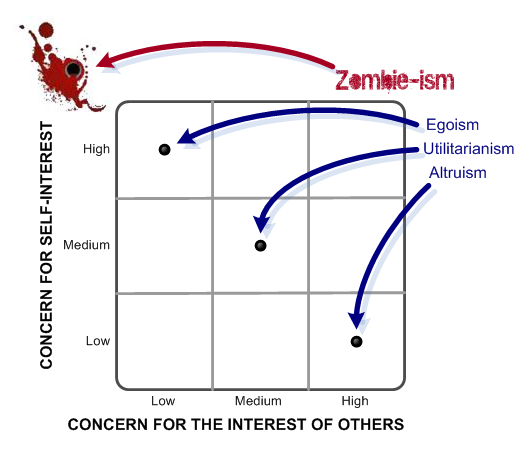
Inspired by artwork by Pictofigo
As an executive, you will be faced with the choice to do the pivot (if you can) or persevere (if you have no other choice). This will lead to a series of “bets”. You lead with a hypothesis that the things you change will allow you to operate at pre-event levels. But, how long will it actually take for you to validate your hypothesis and have a bet pay off with pre-event levels? If you run out of time to figure it out or run out of bets you can place, then you either lose your standing in the market or worse risk going out of business.
Regardless of the organization or institution, there will always be dependencies. The larger the organization, the greater chance of the existence of dependencies.
This template is available for download from Tableau Public
I keep getting asked, does Jira Align support Flow Metrics, as defined in the Flow Framework and SAFe? The short answer is yes. If you believe these metrics will help unlock the potential of your teams, use this community post to see working examples of Tableau reports I have created using Jira Align and Enterprise Insights.

Inspired by artwork by Pictofigo
 Only 15 more days
Only 15 more daysImage Source: Pictofigo

Some of you may have heard there was an earthquake and a hurricane that hit the Mid Atlantic this last week. I see both events as perfect learning opportunities. No, these are not learning opportunities on emergency preparedness. Rather, let's learn about the PDCA cycle by Dr. W. Edwards Deming. Several years ago, my wife and I thought it would be prudent to put together an emergency preparedness kit. We didn't want 6 months of TVP or anything like that. We just wanted something for events that may never happen. So, we planned for the unexpected. We created a kit and packed it away. And there it sat for several years. So, after the earthquake, my wife and I checked our preparedness "kit". It's interesting to see what you put into these things when you haven't had a recent emergency. It's like opening a time capsule to a naive past.
After we did our inventory, we created an actionable list of refinements. I swear, it doesn't matter if you're preparing for a zombie apocalypse, an earthquake, or a hurricane. If you try to plan too much for one particular event, you'll find yourself with a lot of stuff you'll never need or use. Low and behold, a few days later, here came hurricane Irene. Fortunately, the hurricane spared us. And with that, tonight we had a retrospective. You may have guessed. We missed something. What's scary is you don't get many chances to do retrospectives like this. So, we're hoping the new additions will not lead to wasteful spending on something we'll never use.
If you want to get something right, you plan, you do, you check, and you act. Then, you do it again and again. You never stop.
 Last night (April 19, 2011) at precisely 8.11pm, Skynet, the giant computer network that controls most of the U.S. weapons, became self aware. Tomorrow it begins its assault on humanity. Tomorrow is to be Judgement Day. Hmmmm. I'm a big Terminator fan but I've heard this story before. If memory serves me right, I shouldn't be preparing for the day the machines are set to rise and take over the Earth. I should be preparing for disappointment.
Last night (April 19, 2011) at precisely 8.11pm, Skynet, the giant computer network that controls most of the U.S. weapons, became self aware. Tomorrow it begins its assault on humanity. Tomorrow is to be Judgement Day. Hmmmm. I'm a big Terminator fan but I've heard this story before. If memory serves me right, I shouldn't be preparing for the day the machines are set to rise and take over the Earth. I should be preparing for disappointment.
Remember way back when nuclear waste from Earth was stored on the Moon's far side and it was to explode in a catastrophic accident on September 13, 1999? It was to knock the Moon out of orbit and send it and the 311 inhabitants of Moonbase Alpha hurtling uncontrollably into space. It didn't happen!
Remember all of those crazy people who were stockpiling gold, food, and water leading up to December 31, 1999? Sure, I still have a container of TVP somewhere in the basement. It's now there in the event of a zombie apocalypse. Butt CNN Money reported that we spent over $500 Billion on Y2K. Again, nothing really happened!
Some technologies portrayed as common which have not materialized include commonplace civilian space travel, space stations with hotels, moon colonization, suspended animation of humans, and strong artificial intelligence like HAL. We're getting there, but it hasn't happened. Arther C. Clarke went on to write three sequel novels: 2010: Odyssey Two, 2061: Odyssey Three, and 3001: The Final Odyssey. Two out of four have come to pass and we missed the mark.
So, what is my science fiction rambling all about?
Why do we keep making predictions? Aren't we setting ourselves up for a fall over and over again? Sure, I'm all about setting goals. We did get a man on the moon by 1970, as President Kennedy pledged. But fact or fiction, I just don't see 99% of these predictions as coming true. Just as I have less and less faith in predicting the completion date and scope of a project before it begins, I'm not going to buy into Judgement Day either. I'm just trying to manage this cone of uncertainty. Let's just review what happened yesterday, let's see what we're doing today, and then we'll see what we can get done tomorrow.
HT: Wikipedia
Drawing from Pictofigo
When I realized that I could publish my thoughts on a blog, I found it very cathartic. Writing a book posed its own set challenges. When I was halfway done with the book, I saw the forest through the trees. This idiom personified what I was trying to communicate about project management. I found that I had become a writing zombie. I thought of those who came before me, putting pen to paper. They had ideas. But, how many were able get their works published and released to the general public? What roadblocks stopped them from making their dream a reality?
To just accept the status quo without question is one of the first steps to becoming a zombie. Traditionally, a writer gets approval from a publisher, they plan out and write their book, someone edits the work, the book gets printed, and hopefully people buy it. To me, the book publishing process sounded a lot like traditional project management. Regardless of the process, I think you should always ask yourself why. Why are you following the process? If a process doesn’t seem to make sense, perhaps it should be changed. In my case, I decided to change the process to meet my needs, taking a more agile approach.
First, I picked a publish date and decided I would focus on whatever I thought would have the greatest value first. I took my inspiration from Seth Godin who said to just pick a date and ship. Next, I decided that I would publish more content at scheduled intervals, until the body of work was completed. The book will be released in a series of sections or chapters rather than the entire book at once. After fifteen years in the project management industry, I’ve learned that it’s possible to deliver more value sooner, by establishing a series of deadlines and delivering something at each deadline. Lower the risk of not reaching the overall goal, by ensuring delivery of something on a regularly basis.
One of my favorite books, Agile Project Management with Scrum by Ken Schwaber, has 9 chapters and 155 pages. When I purchased the book at a Borders bookstore back in 2005, it cost me $39.99. Though I recognize the value in reading a physical book cover to cover, I would now be willing to purchase chapters of an electronic version of a book, if the author was willing to offer it. Give me the chapters of greatest value first, at a price relative to its overall cost. And from that, I had the basis of the book. I intend to offer it at a very reasonable cost ($2.99) and in multiple formats. Starting with an electronic form allows me to keep costs down and will allow it to be iterated into a better body of work.
I want everyone to know that I don't see myself as an author. I probably don't use the best sentence structure or verb tense. But, I want you to know that the barrier of entry in the publishing world has come down. If you've ever been inspired to write something, just do it! I feels great.

Direct Link to the $2.99 Book on Amazon: Zombie Project Management(Also available on Amazon UK)
Links to both my book and Ken Schwaber's book are both affiliated links. What can I say, I need to feed my coffee habit.

One of the things I like about the zombie metaphor is people get it. We all know a zombie when we see it. It doesn't matter if it's a zombie project, customer, vendor, co-worker, or...a meeting. Oh yes, the dreaded zombie meeting. But what if you're on the fence when it comes to identifying zombie meetings? I've written a few posts of what makes a good meeting. It's time to now list what makes a bad meeting. But wait! Why the negativity? Isn't this blog mostly positive information? Sure, but I recently read, on Dan Pink's blog, an explanation of why you should come up with at least one bad idea today. I found that the idea really worked. I would say I decline around 80% of meeting invites. But, why do I decline so many? Here are a few reasons why. Each reason identifies a potential zombie meeting. If you go to these meetings, you risk being sucked into the horde already attending. Take a moment to review the list.
You may be in a Zombie Meeting if...
[1]No purposed reason for the meeting, with actionable events in mind. e.g. “Provide an updated status, identifying risks and opportunities, and identify new action items.”
[2] No defined attendee list, mapped to the actionable events listed in step 1. There is a difference between an attendee list and a communications distribution list. I get meeting invites sent to a program level distribution list. My name isn't even on the email. It just states "If you're interested in attending, the meeting..."
[3] No agenda. Never schedule a meeting without a written agenda. A meeting without an agenda will just wander aimlessly, until you run out of time or someone kicks you out of the room.
[4] No predefined leader, is running the meeting. Zombies don't have leaders. They usually group into a horde. If there is no leader, the meeting will just drift.
[5] No predefined note taker, identified to document action items or take notes. It should not be the same person. Both [4] and [5] should know their roles before the meeting begins and it can't be the same person. Ever go to a meeting with the intent of being an active participant only to be asked to take notes or lead the meeting, a few minutes into the meeting? It will totally change your focus.
[6] Discussion points do not align to the agenda. This part is challenging because you are already in the meeting. You had no idea it was going to turn into a zombie meeting, before accepting. These is no easy way out. If the conversation drifts off topic, either recommend taking the discussion to another forum or start thinking of an exit strategy.
[7] Meeting ends without having the note taker read back discussion points and the action items. Make sure there is a consensus before the meeting ends. If you see meetings ending without a review, add it to the agenda.
[8] Meeting minutes are not sent out within one to two days. Did the meeting even happen? If the minutes are not distributed and approved, then it is like it never happened. Use a distribution list to ensure all necessary people get a copy.
[9] Meeting starts late. If you don’t start on time, you can’t finish on time. Zombies are in no hurry. Those who will arrive late should just call in, rather than disrupt the meeting. I'm not saying you should board up the room entrance with plywood or anything. It's just rude to arrive late to a meeting. If you stick to a schedule and you know the meeting will be a zombie meeting, calling in or use something like GoToMeeting to help shield yourself from the zombies.
[10] There is food. I'm not referring to a cup of coffee or a scone. If there is a food, get it distributed and get it out of the room. Whenever I go to a meeting where there is some kind of food tray, there are always a few attendees who will graze. They're thinking more about the food than they are about the meeting.
Like the drawing? You can find the original for free at Pictofigo

I'm coming down to the wire on the first installment of my Zombie Project Management book. I look at my Kanban and all of the activities are one-by-one making it into the Done column. It's actually quite exciting! I think back to reading several of Seth Godin's books and him writing "Pick a budget. Pick a ship date. Honor both. Don't ignore either. No slippage, no overruns."
I know that is easier said than done. But halfway through writing my book I saw the forest through the trees. This idiom personified what I'm trying to communicate. I became a "writing" zombie. I thought of those who came before me, puting pen to paper. They had ideas but how many were able to actually offer their works to the general public? What roadblocks stopped them from making their dream a reality? To just accept the status quo without question is your first step to becoming a zombie.
Something in the book publishing business didn't seem right to me. I didn't know what was bothering me until recently. See, I don't like to ask permission and I don't like inefficient processes. If a process doesn't seem to make sense to me, I want to change it.
Doesn't the book publishing process sound a lot more
Waterfall than Agile
? As the Product Owner, I take issue with that.
Step one was to not ask for permission. I decided to use Amazon Kindle Direct Publishing.
Step two was to pick a ship date and ship whatever I thought would have the greatest value first.
Step three is to ship more content, once a month, until I feel the body of work is comlete.
Why release the book in a series of sections or chapters rather than the entire book at once? You all know I’m a strong proponent of Agile approaches. When I looked at the publishing process, I compared it to tradition project management methods. Traditionally, you plan it all out, you build, and then deliver the finalized product. One thing I’ve learned is you can deliver value earlier, if you establish a series of deadlines and ship something at each deadline. In that way, you lower your risk of not reaching your overall goal, by ensuring you deliver something regularly. This will also allow you to produce something of value others can benefit from, at a lower cost. One of my favorite books,
Agile Project Management with Scrum
by Ken Schwaber, has 9 chapters and 155 pages. When I purchased the book at a Borders bookstore some 6 years ago, it cost me $39.99. Though I recognize the value in reading a physical book cover to cover, I would now be willing to purchase an electronic version of the book, by the chapter. Give me the chapters of greatest value first at a price relative its cost of production. At $39.99, each chapter would have cost me just under $4.45.
So, with that in mind, I will "ship" a series of sections or chapters each month for $2.99. I may even bundle a few chapters at a time and offer them as printed copies.
HT: Zombie drawings by
Pictofigo
HT:
Zombie PM website
Yes, the link to the Scrum book by Ken Schwaber is an Amazon affiliate link.
As I work furiousness to complete the first installment in my Zombie PM series, which I plan to release at the end of March, I'm also working on my presentation for the Great Lakes Software Excellence Conference, which I will be appearing at in April. Both are linked in an interesting way. What do you think is the opposite of Servant-Leadership? You guessed right: Zombie Leadership.
 The figure above will be included in the Zombie PM series and perhaps my presentation in Michigan. Though servant-leadership is altruistic in nature, zombies are their own special classification. They are beyond the polar opposite of an altruist. Even the worst of egotists are no match for the zombie. I can't even include them on the chart! So, I had to change this classic chart. Everyone wants to know their place in the world. I'm sure zombies are no exception. Oh, who am I kidding!?
The figure above will be included in the Zombie PM series and perhaps my presentation in Michigan. Though servant-leadership is altruistic in nature, zombies are their own special classification. They are beyond the polar opposite of an altruist. Even the worst of egotists are no match for the zombie. I can't even include them on the chart! So, I had to change this classic chart. Everyone wants to know their place in the world. I'm sure zombies are no exception. Oh, who am I kidding!?